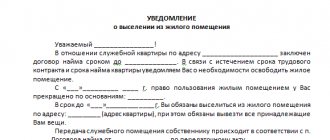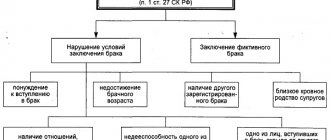The first place to complain about illegal construction by neighbors is to the local municipality. There is also judicial practice on such issues. In any case, the fact of illegally erected buildings should not be hidden, especially if the buildings create a number of inconveniences.
As a result of all kinds of checks and examinations, neighbors will most likely be fined. If urban planning standards were violated, the result will be the final demolition of the object. But for this, the interested citizen will need to draw up a competent appeal and submit it to the relevant authorities.
Concept in current legislation
The legislation reveals the concept of unauthorized construction in Art. 222 of the Civil Code of the Russian Federation (hereinafter referred to as the Civil Code of the Russian Federation). So, an unauthorized construction is a building, structure or other structure erected, created on a land plot that was not provided in the prescribed manner, or on a land plot, the permitted use of which does not allow the construction of a given object on it, or erected, created without obtaining the necessary permits for this. or in violation of town planning and construction norms and rules (clause 1 of Article 222 of the Civil Code of the Russian Federation). From here we can identify signs of self-construction:
- built on a site that was not provided for construction purposes in accordance with the established procedure;
- erected on a land plot, the permitted use of which does not allow the construction of this facility on it;
- created without obtaining the necessary permits in accordance with the law;
- created in violation of town planning and building codes and regulations.
When filing a claim in court for the demolition of a construction project, we do not require the court to recognize the fact that the erected structure is unauthorized. It is such already due to the fact that it has one of the above characteristics. Filing a claim in court is aimed at protecting and restoring the rights of interested parties (co-owners, neighbors, local governments, public interests, etc.) violated by the “samostroy” in the manner prescribed by Art. 11 of the Civil Code of the Russian Federation. One of the ways to protect the right may be, for example, restoring the situation that existed before the violation of the right and suppressing actions that violate the right or create a threat of its violation (demolition of a building and (or) bringing the land plot to its original condition).
It is possible to file a claim for recognition of ownership of an unauthorized construction. In this case, the method of protection will be recognition of the right (Article 12 of the Civil Code of the Russian Federation).
When is construction considered illegal?
Such objects include residential buildings, buildings, structures or structures that have certain characteristics:
- there is no permitting documentation;
- the construction of objects was carried out in violation of the norms and rules established by law;
- the plot on which the house is being built is not registered;
- if the building was erected on the basis of a permit that does not provide for such construction.
Ordinary citizens cannot know with certainty whether there is approval for the construction, or for what purpose the construction is intended.
Therefore, they may suspect a neighbor of unauthorized construction if:
- the house is being built very close to the neighboring plot, a shadow is created that disrupts the comfortable living of the residents or makes it difficult to grow cultivated plants on the plot;
- due to the proximity of the newly erected building, there is a risk of fire;
- The utility network is designed in such a way that there is a risk of flooding with sewage.
It is necessary to invite representatives of fire and architectural supervision; if violations are identified, they will confirm this fact with documents. The certificate will serve as evidence for going to court.
How to register a squatter building as your property?
The ability to legalize (register, legitimize) self-construction is included in clause 3 of Art. 222 of the Civil Code of the Russian Federation. Thus, the right of ownership of an unauthorized construction can be recognized by a court for a person whose ownership, lifelong inheritable possession, permanent (perpetual) use is the land plot on which the object was created, while simultaneously meeting the following conditions:
- if in relation to the land plot the person who carried out the construction has rights allowing the construction of this object on it;
- if on the day of going to court the building complies with the parameters established by the territory planning documentation, land use and development rules or mandatory requirements for parameters contained in other documents;
- if the preservation of the structure does not violate the rights and interests protected by law of other persons and does not create a threat to the life and health of citizens.
The developer must own the land plot by right of ownership, lifelong inheritable ownership, or permanent (perpetual) use. In judicial practice, positions have been developed where judicial protection of the rights of the tenant of a land plot provided for the construction of a certain facility is possible if he has met other conditions for recognizing the right of ownership of an unauthorized construction (Decision of the Supreme Court of the Russian Federation dated October 20, 2016 in case No. 305-ES16-8051, A40-30372/2013; Ruling of the Supreme Court of the Russian Federation dated April 14, 2015 in case No. 32-KG14-19; Ruling of the Constitutional Court of the Russian Federation dated September 27, 2016 No. 1748-O; Ruling of the Constitutional Court of the Russian Federation dated March 24, 2015 No. 658-O).
Thus, today it is possible to legalize (register) a self-construction ONLY by filing a statement of claim in court. Those. samotroy can only be legitimized through the courts.
Self-construction must comply with the rules of land use and development adopted by the municipal legislative (representative) body.
Where to file a complaint about illegal construction?
Depending on what actions the guilty person performs on the site being built and what the legal status of the plot is, there are several options for filing complaints.
First of all, it is necessary to file a complaint with the department of construction and architecture of the municipality on whose territory illegal construction is taking place.
You can also contact Rosreestr and the prosecutor's office.
You can also file a claim in court for illegal construction.
Before filing a complaint, it is necessary to record the fact of a criminal act. For example, you can take photos and videos of the territory.
Positions of the Constitutional and Supreme Courts of the Russian Federation
The courts in the Russian Federation (both arbitration courts and the Court of Justice) have developed a colossal layer of judicial practice in relation to self-construction. The higher courts also do not remain aloof from this.
Thus, the Supreme Court of the Russian Federation and the Supreme Arbitration Court of the Russian Federation adopted a joint resolution, which also touched upon issues related to disputes related to unauthorized construction - Resolution of the Plenum of the Supreme Court of the Russian Federation and the Plenum of the Supreme Arbitration Court of the Russian Federation No. 10/22 of 04/29/2010 “On some issues arising in judicial practice when resolving disputes related to the protection of property rights and other property rights” (paragraphs 22-31 of the Resolution).
The legal owner of a land plot has the right to demand in court the demolition of unauthorized construction
The legal owner of a land plot or a person whose rights and legitimate interests are violated by the preservation of an illegally erected building has the right to apply to the court according to the general rules of jurisdiction of cases with a claim for demolition.
The prosecutor, as well as the authorized bodies, have the right to file a claim for demolition in the public interest.
The requirement to demolish an unauthorized building that poses a threat to the life and health of citizens is not subject to .
Let's file a lawsuit
If the problem has not been resolved, then citizens have the right to file a statement of claim in court. When filling it out yourself, various kinds of questions may arise, so you can take help from human rights activists. They will competently draw up an application taking into account all current rules and regulations.
The court will make a decision taking into account the evidence presented and current standards in the field of construction, so collect all the necessary certificates in advance (cadastral passport or land surveying scheme).
Real estate that has signs of unauthorized construction, the right to which is registered, may be demolished
In the event that real estate, the right to which is registered, has signs of an unauthorized structure, the presence of such registration does not exclude the possibility of filing a demand for demolition. The reasoning part of the court decision to satisfy such a claim must indicate the grounds on which the court recognized the property as an unauthorized construction.
The court's decision to satisfy the claim for demolition of the building in this case serves as the basis for making an entry in the Unified State Register of the termination of the defendant's ownership of the object.
If the illegally erected structure was encumbered with the rights of third parties, for example, the rights of the mortgagee, the tenant, the corresponding encumbrances are terminated.
In this case, persons whose rights are burdened with the disputed object must be involved in the case as third parties who do not make independent claims regarding the subject of the dispute, on the side of the defendant, since a judicial act may affect their rights.
Who is the defendant in a squatting claim?
Within the meaning of paragraph two of paragraph 2 of Article 222 of the Civil Code of the Russian Federation, the defendant in a claim for the demolition of a building is the person who carried out the unauthorized construction. When creating unauthorized construction with the involvement of contractors, the defendant is the customer as the person on whose instructions the illegal construction was carried out.
If an unauthorized structure is in the possession of a person who did not carry out the construction, the defendant in the claim for demolition is the person who would have become the owner if the structure had not been unauthorized. For example, in the case of alienation of unauthorized construction - its acquirer; when making an illegal building as a contribution to the authorized capital - the legal entity that received such property; in the event of the death of an individual or reorganization of a legal entity - the person who received the property into possession.
- If the ownership of an illegal building is registered not with the owner, but with another person, such a person must be brought as a co-defendant to participate in the demolition case.
- If the defendant against whom the decision to demolish the unauthorized building was made did not carry out its construction, he has the right to file a claim in court for damages against the person who carried out the construction.
- If an illegal construction was carried out on a land plot that does not belong to the developer, but the necessary permits for its creation were obtained, the owner of the land plot has the right to file a claim for recognition of ownership of the constructed object. The defendant in such a claim is the developer. In this case, the developer has the right to demand reimbursement of construction costs from the copyright holder.
- If an unauthorized construction is carried out on a land plot owned by the developer, but the necessary permits for its creation have not been obtained, the defendant in the developer’s claim for recognition of ownership of the structure is the local government body on whose territory the object is located (in the federal cities of Moscow or St. Petersburg - the authorized state body of the federal cities of Moscow or St. Petersburg).
What does not apply to self-construction
When raising the issue of illegal construction, you should know that a number of buildings being erected do not require obtaining permits.
These include:
- construction of auxiliary structures that do not have a permanent foundation;
- a car or tractor garage built on agricultural land, if it does not represent a commercial activity;
- various superstructures, canopies and other structures that are erected during the reconstruction of the building;
- a structure that does not affect the foundation or load-bearing walls of the main building.
Attention! Our qualified lawyers will assist you free of charge and around the clock on any issues. Find out more here.
Recognition of property rights by the court
When considering claims for recognition of ownership of a self-construction, the court determines whether during its construction there were significant violations of urban planning and building codes and regulations, and whether such a building poses a threat to the life and health of citizens. For this purpose, the court, in the absence of the necessary conclusions of the competent authorities or if there is doubt about their reliability, has the right to order an examination according to the rules of procedural legislation.
The absence of a building permit in itself cannot serve as a basis for refusing a claim for recognition of ownership of a building. At the same time, the court must establish whether the person who created the illegal construction took appropriate measures to legalize it, in particular to obtain a construction permit and/or an act of putting the facility into operation, and whether the authorized body lawfully refused to issue such a permit or act of putting the facility into operation.
Unless otherwise established by law, a claim for recognition of ownership of an unauthorized construction is subject to satisfaction when the court establishes that the only signs of unauthorized construction are the absence of a construction permit and/or the absence of an act of putting the object into operation, to obtain which the person who created the illegal construction undertook measures. In this case, the court must also establish whether the preservation of the structure does not violate the rights and legally protected interests of other persons and does not create a threat to the life and health of citizens.
Sample complaint
The complaint can be made in free form. There is no single template to fill out (the exception is an electronic complaint to the prosecutor’s office).
The “header” of the complaint has an unchanged structure - in the upper right corner you need to indicate the full name and details of the applicant (who is filing the complaint), and below the information of the authorized body/official (to whom it is being submitted). Anonymous statements regarding illegal construction are not reviewed - there is no point in sending them.
Contents of the complaint:
- who files the complaint - full name, address, property;
- who is the violator – full name, contacts, information;
- information about the offense, for example - damage to the common property of co-owners, construction of a store on individual housing construction, failure to maintain distances from the fence, going beyond the “red lines”, illegal extension to the house, threat to life, etc.
- the reasons for filing the complaint;
- were there any attempts to resolve the conflict peacefully, what did they lead/did not lead to;
- request - to consider the application, conduct an inspection, notify about the results;
- feedback method (mail, telephone);
- date and signature of the applicant.
Inheritance rights to unauthorized construction
Considering that the illegal construction is not property legally owned by the testator, it cannot be included in the inheritance estate. At the same time, this circumstance does not deprive the heirs who accepted the inheritance of the right to demand recognition of their ownership of the property that was erected without permission.
However, such a requirement can be satisfied only if the heirs by inheritance have received the right of ownership or the right of lifelong inheritable possession of the land plot on which the construction was carried out, subject to the conditions established by Article 222 of the Civil Code of the Russian Federation.
Unauthorized reconstruction of real estate
The provisions of Article 222 of the Civil Code of the Russian Federation apply to unauthorized reconstruction of real estate, as a result of which a new object arose.
The court obliges a person to demolish unauthorized reconstructed real estate only if it is established that the object cannot be restored to the condition that existed before such work was carried out.
If the object is not immovable, and also in the course of redevelopment, redevelopment (re-equipment) of real estate, a new object is not created, then it cannot be recognized as self-construction. Protection of rights violated by the preservation of such objects.
The provisions of Article 222 of the Civil Code of the Russian Federation do not apply to relations related to the creation of unauthorized erected objects that are not real estate, as well as to redevelopment, reconstruction (re-equipment) of real estate, as a result of which a new real estate object was not created.
Persons whose property rights or legal possession are violated by the preservation of such objects may apply to the court with a claim to eliminate the violation of rights not associated with deprivation of possession (Article 304 of the Civil Code of the Russian Federation).
In cases where an illegally constructed facility, which is not a new facility or real estate, poses a threat to the life and health of citizens, interested parties have the right, on the basis of paragraph 1 of Article 1065 of the Civil Code of the Russian Federation, to file a lawsuit to prohibit the operation of this facility.
An unfinished construction project may be recognized as unauthorized construction
In accordance with Article 130 of the Civil Code of the Russian Federation, unfinished construction objects are classified by law as real estate. Based on paragraph 1 of Article 222 of the Civil Code of the Russian Federation, not only a residential building, other structure, structure, but also other real estate is recognized as an illegal construction. Consequently, an unfinished construction project as real estate can also be recognized as an unauthorized construction.
Ownership of an unfinished construction project as an unauthorized construction may be recognized if there are grounds established by Article 222 of the Civil Code of the Russian Federation.
Ownership of self-construction by court decision
Recognition of ownership of an illegal construction is the basis for the emergence of ownership rights by a court decision. In this regard, when considering a claim for recognition of property rights, the provisions of paragraph 3 of Article 222 of the Civil Code of the Russian Federation in the wording that were in effect at the time the court decision was made are subject to application.
The Presidium of the Supreme Court of the Russian Federation approved the “Review of judicial practice in cases related to unauthorized construction” (approved by the Presidium of the Supreme Court of the Russian Federation on March 19, 2014) . It contains important issues regarding the application of substantive and procedural law by courts when considering issues of demolition of unauthorized buildings or recognition of ownership rights to unauthorized construction.
The Constitutional Court of the Russian Federation has developed legal positions on certain issues of interpretation and application of Art. 222 of the Civil Code of the Russian Federation.
Unauthorized construction is an offense
Illegal construction is an offense that consists of violating the norms of land legislation regulating the provision of a land plot for construction, or urban planning norms regulating design and construction (Determination of the Constitutional Court of the Russian Federation dated January 28, 2016 No. 143-O; Determination of the Constitutional Court of the Russian Federation dated March 28. 2017 No. 609-O).
Actions to erect an unauthorized structure are guilty if it is established that the structure meets at least one condition for recognizing it as unauthorized.
Carrying out illegal construction is a guilty act, evidence of the commission of which is the establishment of at least one of the conditions listed in paragraph 1 of Art. 222 of the Civil Code of the Russian Federation (Determination of the Constitutional Court of the Russian Federation dated July 3, 2007 No. 595-O-P).
The obligation to demolish an unauthorized building is a sanction for an offense
The obligation to demolish an illegal building is a sanction for an offense committed, which may consist of a violation of both the norms of land legislation regulating the provision of land for construction, and the urban planning norms regulating design and construction (Determination of the Constitutional Court of the Russian Federation dated January 17, 2012 No. 147- O-O; Determination of the Constitutional Court of the Russian Federation dated March 28, 2017 No. 609-O).
The owner of a land plot, the subject of real rights to it, the legal owner of the plot, a person whose rights and interests are violated by the construction of an unauthorized structure or whose life and health it threatens, has the right to file a claim for its demolition.
If the preservation of an object violates the rights and legally protected interests of other persons or creates a threat to the life and health of citizens, then, taking into account the rule of paragraph. 3 p. 3 art. 222 of the Civil Code of the Russian Federation, interested parties have the right to go to court with a demand for the demolition of an illegal building. From this understanding of Art. 222 of the Civil Code of the Russian Federation is also based on the courts in practice (Determination of the Constitutional Court of the Russian Federation dated March 22, 2011 No. 438-О-О).
The presence of registration of ownership of an illegal building does not prevent the filing of a demand for its demolition.
If real estate, the ownership of which is registered, has signs of unauthorized construction, the presence of registration does not exclude the possibility of filing a demand for its demolition (Determination of the Constitutional Court of the Russian Federation dated September 27, 2016 No. 1748-O).
Will the owner be able to legitimize it?
Although there are a huge number of self-built buildings in Russia, the vast majority of them will definitely not be demolished. The “dacha amnesty” played a huge role in this
which was recently extended once again. Such an “amnesty” makes it possible to legitimize unauthorized construction of objects if they do not violate construction and urban planning regulations - it is enough to submit a notification.
As for commercial real estate, which neighbors have complaints about, here the owners also have options. The court will order the demolition of such buildings only if they were built without complying with building codes at all. For example, the media reported on one of the unauthorized 4-story buildings that the owner set up a hostel for migrants, and did not even take care of the sewage system - the drains flowed directly to the neighbors. As a result, the building was demolished, and the owner was then required to reimburse the cost of the work.
In less “radical” cases, the owner can save his self-construction
– even if the neighbors are against it. For example, if a noisy shopping center is suddenly built instead of a school, the owner can use various methods to achieve a change in the intended use of the land, then agree on a new project and obtain permission for the building that has actually been built. And if the building itself is built without significant shortcomings, no complaints will help.
Another point is possible corruption
. So, if they start building something more or less large in the city (like a high-rise building, a shopping center or an office center), it is almost impossible to hide it from the regulatory authorities. Nevertheless, stories about buildings that “do not exist” on paper appear in the media regularly.
In addition, if it suddenly turns out that an already occupied apartment building was actually built with violations, it will definitely not be resettled or demolished
– the local administration simply does not want to provoke such a conflict and would prefer to issue all permits for the construction site and waive claims against the developer.
Thus, it is possible to complain about squatter construction in Russia - and the complaint will even be considered, but there is no point in hoping that illegal construction will stop or that a building built with violations will be demolished. Still, the construction complex is now a priority of state policy
, so local authorities will be ready to show miracles of loyalty.
The responsibility for demolition rests with the person responsible
In accordance with paragraph. 2 p. 2 art. 222 of the Civil Code of the Russian Federation, which establishes the obligation to demolish an unauthorized building by the person who carried it out or at his expense, it is possible to establish the guilt of the person who carried out the illegal construction and to place the burden of demolition on him if there is guilt. Clause 2 of Art. 222 of the Civil Code of the Russian Federation does not imply the imposition on an innocent person of the obligation to demolish at his own expense an unauthorized building not created by him (Determination of the Constitutional Court of the Russian Federation dated April 26, 2016 No. 910-O).
The tenant of a land plot provided for the construction of a specific facility may be recognized as having ownership of a structure erected without the necessary permits if he has met other conditions for recognizing ownership of an unauthorized structure.
Ownership of an illegal building erected by a person without the necessary permits on a land plot that was provided to him under a lease agreement for the construction of the corresponding property may be recognized if during the construction there were no significant violations of town planning and building codes and regulations and the preservation of this structure is not violates the rights and legally protected interests of other persons, does not create a threat to the life and health of citizens (Determination of the Constitutional Court of the Russian Federation dated September 27, 2016 No. 1748-O; Determination of the Constitutional Court of the Russian Federation dated March 24, 2015 No. 658-O; Determination of the Constitutional Court of the Russian Federation dated January 29. 2015 No. 101-O).
We are writing to the prosecutor
The prosecutor's office has great powers in the field of construction supervision. Therefore, contacting a government agency is the most effective way to protect yourself from unauthorized actions of a neighbor.
The statement should be written carefully, indicating only the essence of the problem; perhaps this will be a reason to bring the culprit to justice in accordance with current laws.
When writing a complaint, you need to reflect the main points:
- name of the body;
- information about the applicant and the violator (full name, residential address, contact phone number);
- consistently present specific facts;
- attach evidence (photos, examination, response to an appeal to the municipality);
- At the end, put your personal signature and indicate the date.
The right of a local government body to make an administrative decision on the demolition of unauthorized buildings
Federal Law of July 13, 2015 No. 258-FZ in Art. 222 of the Civil Code of the Russian Federation, clause 4 was introduced, which vested local government bodies of a city district (municipal district in the event that an unauthorized building is located on an intersettlement territory) with the right to make a decision on demolition in the event of its creation or construction on a land plot not provided in the prescribed manner for these purposes, if this land plot is located in a zone with special conditions for the use of territories (with the exception of the zone for the protection of cultural heritage sites (historical and cultural monuments) of the peoples of the Russian Federation) or on public territory or in the right of way of utility networks of federal, regional or local significance .
Within seven days from the date of the decision to demolish the unauthorized building, the local government body that made such a decision sends to the person who carried out the construction a copy of this decision containing the deadline for demolition, which is established taking into account the nature of the building, but cannot be more than 12 months .
If the person who carried out the unauthorized construction has not been identified, the local government body that made the decision to demolish the building, within seven days from the date of such decision, is obliged to:
- publish, in the manner of official publication (promulgation) of municipal legal acts, messages about the planned demolition;
- ensure that a message about the planned demolition of a building is posted on the official website of the authorized local government body on the Internet information and telecommunications network;
- ensure that notices about the planned demolition of the structure are posted on the information board within the boundaries of the land plot on which the unauthorized construction was created.
If the person who carried out the unauthorized construction has not been identified, the demolition of the structure can be organized by the body that made the relevant decision no earlier than two months after the date of posting on the official website of the authorized local government body on the Internet. reports of the planned demolition of such a building.
The Constitutional Court of the Russian Federation has developed some legal positions regarding the interpretation of paragraph 4 of Art. 222 of the Civil Code of the Russian Federation in the Determination of September 27, 2016 No. 1748-O.
If the court has refused to satisfy the demands for demolition, the authorized body may decide to demolish it only taking into account new factual circumstances that were not the subject of the court's investigation.
It is permissible to make a decision on the demolition of an unauthorized building based on new factual circumstances that were not the subject of investigation in court.
This is possible, for example, if the court refused to satisfy the demand for demolition, and the object was reconstructed, and a new object was created on its basis, which does not meet safety requirements, or if the court, during the consideration of the case, did not assess whether there are specific grounds for demolition of buildings listed in paragraph 4 of Art. 222 of the Civil Code of the Russian Federation (Determination of the Constitutional Court of the Russian Federation dated September 27, 2016 No. 1748-O).
Contacting the municipality
Vigilant citizens write a complaint to the local administration. Government representatives are required to respond to written requests within 30 days . They are not vested with the power to impose administrative liability, but they have other powers.
If buildings are identified that were erected in violation of construction legislation, local authorities decide to demolish the illegal facility.
The procedure goes through a number of stages:
- an appropriate decision is made;
- if the culprit is known, then he is sent a copy of the document indicating the deadline for the demolition of the object, the situation must be corrected within 1 year;
- if the violator is not identified, then the decision made is published in local newspapers, the official website of the administration, and boards should be installed on the land plot indicating the information;
- if the search does not yield results, the municipality will independently organize the demolition, but only after two months have passed from the date of publication of the message.
The procedure for making a decision on the demolition of unauthorized buildings built before 09/01/2015
The procedure for making a decision on the demolition of unauthorized buildings specified in paragraph 4 of Art. 222 of the Civil Code of the Russian Federation also applies to those buildings that were erected before the entry into force of Federal Law No. 258-FZ of July 13, 2015. The new regulation does not change the previously established adverse consequences of the construction of a structure. Before the said Law came into force, the unfavorable consequence was its demolition. The date of construction of an unauthorized building does not change the nature of the offense (Determination of the Constitutional Court of the Russian Federation dated September 27, 2016 No. 1748-O).
The presence of state registration of the right to an unauthorized construction does not in itself prevent the authorized body from making a decision on its demolition.
Availability of state registration of the right to the property, which, in accordance with paragraph 1 of Art. 222 of the Civil Code of the Russian Federation is an unauthorized construction, which in itself does not prohibit the authorized body from making a decision on its demolition. A person whose right to real estate is registered in the Unified State Register can appeal the decision in court (Determination of the Constitutional Court of the Russian Federation dated September 27, 2016 No. 1748-O).
After the court has refused to satisfy the demands for the demolition of an unauthorized building, the local government body does not have the right to make a decision to demolish it based on the motives and arguments that were rejected by the court.
The adoption by a local government body of a decision to demolish a property based on motives and arguments that were previously rejected by the court, in fact, violates the requirement for the binding force of a court decision (Determination of the Constitutional Court of the Russian Federation dated September 27, 2016 No. 1748-O).
Where to complain about squatter construction? Using the example of the city of Krasnodar
Self-construction can cause a lot of inconvenience, both to co-owners or neighbors, and to an unlimited number of people. Especially if the squatter building is erected encroaching on the borders of a neighboring site in violation of urban planning norms and rules, or generally poses a threat to the life and health of citizens. In this case, a complaint can be sent to the municipal land control with a request to conduct an inspection to identify violations.
Subp. 2 p. 1 art. 1 of the Law of the Krasnodar Territory dated 04.03.2015 No. 3126-KZ “On the procedure for the implementation by local government bodies of municipal land control in the territory of the Krasnodar Territory” stipulates that one of the goals of municipal land control is to prevent and suppress the facts of unauthorized construction and occupation of land plots in the territory of the Krasnodar Territory the edges.
For example, in the municipality of Krasnodar, such a body is the Department of Municipal Control of the Administration of the Municipality of Krasnodar
This body carries out inspections of compliance with land legislation on the territory of the Krasnodar municipal district. As a result of the inspection, an inspection report is drawn up, in which the identified violations are entered, which serves as the basis for bringing to administrative responsibility under Art. 8.1 of the Law of the Krasnodar Territory of July 23, 2003 No. 608-KZ “On Administrative Offences”. And subsequently, this body is authorized to file a claim in court on behalf of the Administration of the Krasnodar Municipal District for the demolition of unauthorized buildings, and also acts as a defendant in the courts in claims for recognition of ownership of unauthorized buildings.
Administrative responsibility
The current Code of Administrative Offenses provides for specific standards for violation by the developer of the Federal Law “On Violation of Requirements in the Construction of Buildings and Structures.”
For construction without obtaining the appropriate permit, a fine is imposed, which is provided for by the sanction of Article Art. 9.5 Code of Administrative Offenses of the Russian Federation.
Thus, paragraph 1 provides:
- for individuals – from 2000 to 5000 rubles;
- officials of a legal entity and individual entrepreneur - from 20,000 to 50,000 rubles;
- legal entities – from 500,000 to 1,000,000 rubles.








